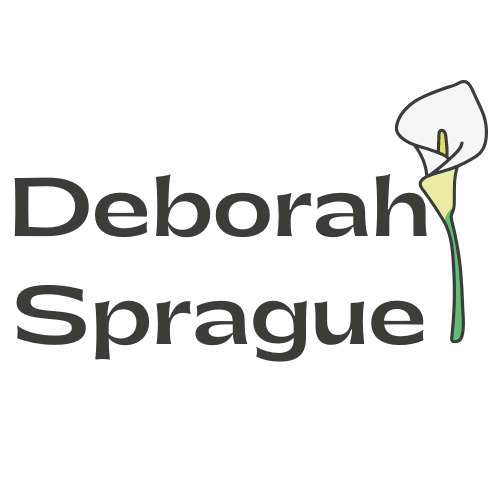
Grief is one of those deeply personal experiences because no one has your exact life story. Which means when the grief hits you are acutely aware of how alone you can be in life. As we enter Memorial Day weekend it is super easy to focus on all the summery activities and obligations. Graduations are happening, along with their celebrations. The warmth of the season pulls us back out into nature. And we forget that this holiday was set after World War 2 to remember those that died serving our country in war.
My Grandfather served in Korea, one of the core memories that I have is of him standing in his kitchen staring out the window, while smoking a cigar and sipping coffee. He wouldn’t talk about what was on his mind, men of his generation didn’t do that. But it was on his face, the ache of the losses he had faced throughout his life. Losses that extended beyond losing friends in war, his parents, siblings, and even a daughter. For the weight of grief is also in the losses we don’t acknowledge as a culture or community.
When someone dies we gather as a community to celebrate their life, and to grieve together. When a beloved pet passes those who are closest to us come around us to help us grieve the loss and adjust to the void. When we lose a job someone may observe that we need to grieve it, but mostly we are told to learn from it and move on. I have found that in all that we grieve the common thread is grieving what will never be. My Grandfather ached for the men with whom he would not be able to talk to again. We ache for the pet that no longer greets us. We ache for the lost opportunities that come with losing a job. We ache for our children who don’t have the opportunities we hoped for them. We ache for the relationships we haven’t been able to keep. We grieve the loss of our dreams, all we hoped for that will never be. We grieve.
What makes it good? Grief can be such a delicately complicated web. Only the one who weaves it knows which are the sticky threads. One of those sticky threads is the painful reality that in losing a good thing, we also lose some bad. There seems to be an unspoken rule when someone dies that we aren’t allowed to speak poorly of them, even if it is true. When we lose a job we want to speak poorly of those that did the firing, but what about the parts of the job that you won’t miss? When you lose a friendship, what about that person leaving your life is healing to you?
I have learned that the good in grief is the process of letting go allows for healing that I never expected to receive. Part of the ache of loss is the breaking of oneself, and watching that heal and restore, and begin to shine in new ways is the good! The only way through grief is to keep moving, and that movement itself feels like it is adding pain! But it is this movement that realigns us. This realignment forces us to let go of hopes; dreams; experiences we won’t share; expectations that we have of ourselves; we let go of the guilt and shame caused by the person or experience; and we begin to gain new perspectives that leave us forever changed.
The good in grief is rarely seen while grieving. It is found on the other side, when you look in the mirror and see that you are living in greater alignment with who you truly are and what matters most to you. So whatever is breaking you today in grief, know that you are in a process of transformation and you won’t reach butterfly if you don’t first break completely down into the cocoon. Trusting this process can be scary, brutal, and very difficult if you don’t have people around you to walk you through. As a coach it is my honor to walk with people through different seasons to support their growth and alignment. If you want to know more you can sign up here for a free 30 minute session to learn how I can help you through your transforming grief.

I see you.
Your mom may have done her best, but that doesn’t mean your childhood was any less painful.
Your mom may have done her best, but that doesn’t mean you weren’t neglected.
Your mom may have claimed she was doing her best, but as you have become an adult you realize that she either couldn’t or wouldn’t and being incapable is less painful than unwilling, but you don’t know which you want it to be.
You have been told a hundred times how wonderful your mother is, and you wonder who they are talking about.
Your heart breaks daily because of how much you love and care for your children, and it reminds you of all you didn’t have growing up.
They don’t make cards that say “Thanks mom, for keeping me alive until I could do it myself” or “Thanks for trying your best, I learned a lot from all you didn’t do” or “Everyone told me to give my mother a break because motherhood is difficult, but now that I am one I know that I was nice to you in my honesty about your parenting.”
If you have made it this far and want to tell me all the ways I am wrong, then what you haven’t realized is that this blog entry is not for you. This blog is for those women whose mom abused them. Whose mom had a mental disorder that they used as an excuse for all the things they didn’t want to do. For those who grew up with moms who weren’t required to heal and mature and who were told by their dads “at some point you are going to be more mature than your mom and will have to figure out how to be nice to her.” For those who, for whatever reason had to mom their mom, without ever knowing what it even means to be a mom. This is for those who met a woman 6 months ago who has shown them more maternal care than their own mother has in all of the last decade.
To these women I say again, I see you and I applaud you for choosing a different path! For doing the hard work to heal so that you would not break your children the way you were broken. And on this annual reminder of how complicated life and relationships can be, I would like to challenge you to take the time to continue this healing process this Mother’s Day weekend by preparing and processing through these 5 steps:
- Schedule time to not only process the below, but to care for yourself in this process. Prepare by dressing comfortably, gathering your favorite warm beverage, journal, tissue box, and sit in a place where you can emote as loudly, or softly, as needed, and have that person ready to give you a hug and just hold you until you can breathe again, because it is Mother’s Day and the reality is it does leave you that raw, but you have had to fake it. So, here is to not faking it, and gaining some healing.
- You have been told to forgive and forget. This is bad advice because beyond forgiveness there are two options: release or reconciliation. Reconciliation will require your mom to own things that she has done and, where applicable, not only apologize for, but actually show you that she will treat you differently. This process also requires boundaries! Remember when it comes to boundaries they aren’t solely about keeping people out, but by showing them the path back. So as you think this through, take a moment to identify the path back, if there is one.
- Take the time to grieve what you didn’t have that you now know you needed, and deserved. Don’t listen to the voice in your head that says “you are not entitled to _______.” because you ARE entitled as a human to receive basic love and care; to not be made to feel like a burden; to be celebrated for all the wonderful ways you are; to be allowed to take up space; and to live in peace and joy, not fear and shame. Grieve the loss of what you didn't have, and release the shame what you were given instead.
- Consider how you may honestly and freely honor your mother? No guilt trips here! Though you may need to pause and review what it means to honor, not neglecting to see that honoring her may include not permitting her to hurt you more. There are ways in which you can choose to honor her from your healed place, and they do not include trippin by guilt!
- Once you have finished releasing the tears, or as my friend calls them “emotional sweat”, go find your person and get that hug! You are safe now. You are loved. You are delighted in because who you are is wonderful.
Drop a comment below and tell me what change you were able to make this Mother’s Day.

Recently I added “It’s All So Incredibly Loud” by the Glass Animals to my current musical rotation. While it is a song about a couple breaking up, the reason it resonates so deeply in me is the language of grief found in the chorus:
“Ooh, I'm breaking down
Whispers would deafen me now
You don't make a sound
Heartbreak was never so loud”
Heartbreak and grief come in many forms. The most obvious is when we lose someone through death, breaking up, or the demise of a friendship. Sometimes we are cut completely out, sometimes it’s a slow fade. And this is when we acknowledge grieving the loss. The less obvious ways we grieve are when we lose a job or an opportunity we really wanted; we have a big change in our lives like moving to another state; when we feel our hopes die; and we even feel grief for not being known or seen as our true selves.
There are seasons of life that may feel like a master class in grief, and if you don’t know what it is then you may battle the symptoms, but not the root cause! You may be familiar with the 5 stages of grief identified by Kubler-Ross, they are: Denial, Anger, Bargaining, Depression, and Acceptance. These are not sequential stages, but identifiable collections of symptoms that we may experience and express during our grieving. These can derail the progress we are making towards our goals, and if we don’t fully process the grief then our progress often is slowed until it is complete.
The reality of grief is that the only way is through, and the best way through is with people around you who can encourage you and help you to move through the grief. It can be easy to overlook and downplay grief when it is not associated with the loss of a person. One of the ways it shows up is as fear. When we grieve the loss of a dream, opportunity, or hope, it is easy to begin to fear that we won’t achieve anything. Or worse, that we don’t deserve our goals because of what we lose along the way.
Think back to a time that you lost something you greatly valued. What did you feel about that loss? Which stages of grief did you walk through? Who in your life helps you to recognize that you are grieving? And gives you the space to grieve?
I hope as you pondered these questions you realized who in your life supports you in the tough times and encourages your healing. When you find yourself getting stuck I hope you are able to move again with the help of these folks because the only way is through, and the way through is together. If you don’t have anyone, or if you are realizing that there are a lot of things in your life that you haven’t grieved and need help with that, reach out! Helping people break through these challenges is what I do as a coach. You can get a free 30min session by clicking here.









